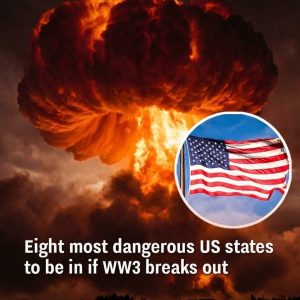Chicago’s ongoing struggle with gun violence has escalated into a constitutional confrontation between city officials and the Trump administration, following a devastating Labor Day weekend that left 54 people wounded and seven dead across multiple unrelated incidents.
The latest surge in violence has prompted Mayor Brandon Johnson to take unprecedented action, signing an executive order Saturday that prohibits Chicago police from cooperating with federal authorities in certain enforcement activities. This bold move represents one of the most direct challenges to federal intervention proposals seen in recent years.
Weekend Violence Underscores Persistent Crisis
The Labor Day weekend bloodshed unfolded across Chicago with characteristic randomness, affecting diverse neighborhoods and demographics. Among the seven fatalities were at least two women and three men, while two others remained unidentified as investigations continued. Police reported few arrests despite the widespread nature of the incidents, highlighting the complex challenges facing law enforcement.
This pattern of holiday weekend violence has become disturbingly routine for Chicago. The July 4 weekend saw 55 shootings with six deaths, while Memorial Day recorded 22 shootings resulting in two fatalities. These recurring spikes during holiday periods have become focal points for both local concern and federal intervention discussions.
City statistics paint a grim picture of the broader crisis: 272 homicides have occurred so far this year, with 225 involving firearms. These numbers represent more than statistical data—they reflect shattered families and traumatized communities struggling with persistent insecurity.
Mayor’s Bold Resistance Strategy
Johnson’s executive order, announced at a press conference alongside Illinois Governor J.B. Pritzker, establishes clear boundaries for federal cooperation while maintaining local law enforcement functions. The directive allows Chicago police to continue enforcing state and local laws but explicitly prohibits assistance with National Guard patrols, federal arrests, immigration enforcement, or other federal operations.
“This executive order makes it emphatically clear that this president is not going to come in and deputize our police department,” Johnson declared, flanked by supportive state and city leaders presenting a united front against federal intervention.
The mayor’s rhetoric painted vivid scenarios of potential federal overreach: “We will protect our Constitution, we will protect our city, and we will protect our people. We do not want to see tanks in our streets. We do not want to see families ripped apart. We do not want grandmothers thrown into unmarked vans or homeless Chicagoans harassed by federal agents.”
These striking images reflect widespread Democratic concerns about aggressive federal tactics and their potential impact on vulnerable communities.
Legal Framework and Transparency Measures
The executive order includes detailed provisions designed to maintain city oversight and prevent anonymous federal operations. Key requirements include prohibiting officers from concealing their faces or covering Chicago Police Department insignia while in uniform, ensuring clear identification of city personnel during any federal operations.
Johnson committed the city’s law department to utilize “every legal mechanism” available to challenge federal deployment attempts, setting up potential court battles over the scope of federal intervention powers versus local autonomy.
“We find ourselves in a position where we must take immediate, drastic action to protect our people from federal overreach,” Johnson stated, framing the conflict in constitutional terms rather than purely partisan ones.
The legal implications remain largely untested, as the extent to which municipalities can refuse federal law enforcement cooperation has not been definitively established by courts.
Federal Administration’s Response
The White House quickly rejected Johnson’s executive order, with spokeswoman Abigail Jackson characterizing Democratic opposition as counterproductive political theater.
“If these Democrats focused on fixing crime in their own cities instead of doing publicity stunts to criticize the President, their communities would be much safer,” Jackson told Reuters, attempting to shift focus back to local leadership accountability.
This response reflects the administration’s broader strategy of attributing urban crime to Democratic governance failures while positioning federal intervention as necessary assistance for communities let down by local officials.
Trump’s Broader Urban Strategy
The Chicago confrontation represents part of a wider federal approach to urban crime, with Trump already deploying troops and federal agents to Washington, D.C., and threatening similar actions in Baltimore and other cities. This coordinated strategy marks a significant departure from traditional federal-local law enforcement relationships.
The approach has generated debate about appropriate boundaries between federal resources and local autonomy, with different communities reaching varying conclusions about the desirability of federal assistance based on their specific circumstances and political orientations.
Political Calculations and Risks
The standoff presents complex political challenges for Democratic leaders, particularly with midterm elections approaching. Opposition to federal crime-fighting efforts risks creating perceptions that Democrats prioritize political resistance over public safety, potentially costly in communities directly affected by violence.
However, Democratic officials argue they are defending fundamental constitutional principles and community-based governance against federal overreach that may be perceived as occupation rather than assistance by affected populations.
Johnson acknowledged these political dynamics while expressing confidence in judicial oversight: “It’s an area in which at least there’s some semblance of check and balance in this country,” indicating reliance on courts to resolve the constitutional questions involved.
Community Impact and Broader Implications
While political leaders engage in constitutional battles, Chicago residents continue experiencing the daily reality of gun violence that sparked this confrontation. The communities most affected by weekend shootings await practical solutions that can restore neighborhood safety and security.
The resolution of this conflict will likely establish important precedents for federal-local relationships nationwide, potentially affecting how similar situations unfold in other cities facing crime challenges. Court decisions clarifying the extent of federal intervention powers versus local autonomy rights could reshape urban governance across the country.
Historical Context and Future Outlook
This confrontation occurs within a broader historical context of federal-local tensions over law enforcement, echoing previous disputes over civil rights enforcement, immigration, and other contentious issues. The current standoff represents a modern iteration of these longstanding constitutional questions about the balance between federal authority and local self-governance.
Both sides appear prepared for extended legal and political battles, with neither showing signs of compromise. The city has committed substantial resources to legal challenges, while the federal administration maintains its intervention proposals as necessary responses to local failures.
The Path Ahead
As this constitutional confrontation unfolds, several key factors will likely determine its resolution: court decisions on the scope of federal intervention powers, public opinion in affected communities, electoral outcomes that could shift political dynamics, and most importantly, the actual effectiveness of various approaches to reducing urban violence.
The ultimate test of any policy approach will be its ability to address the underlying conditions that generate persistent gun violence while maintaining community trust and constitutional principles. Whether federal intervention, local autonomy, or some hybrid approach proves most effective may depend on implementation details and community-specific factors that extend beyond the current political rhetoric.
Chicago’s residents, caught between political maneuvering and daily security concerns, await solutions that can bridge constitutional principles with practical safety needs. The outcome of this standoff may well determine how American cities address crime challenges for years to come.





